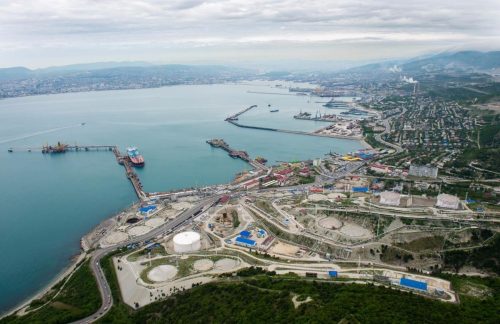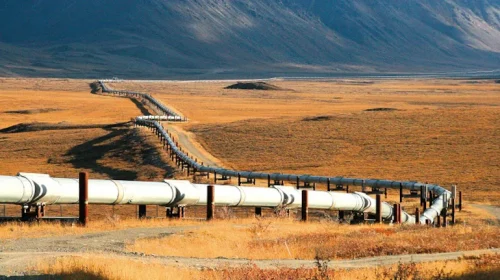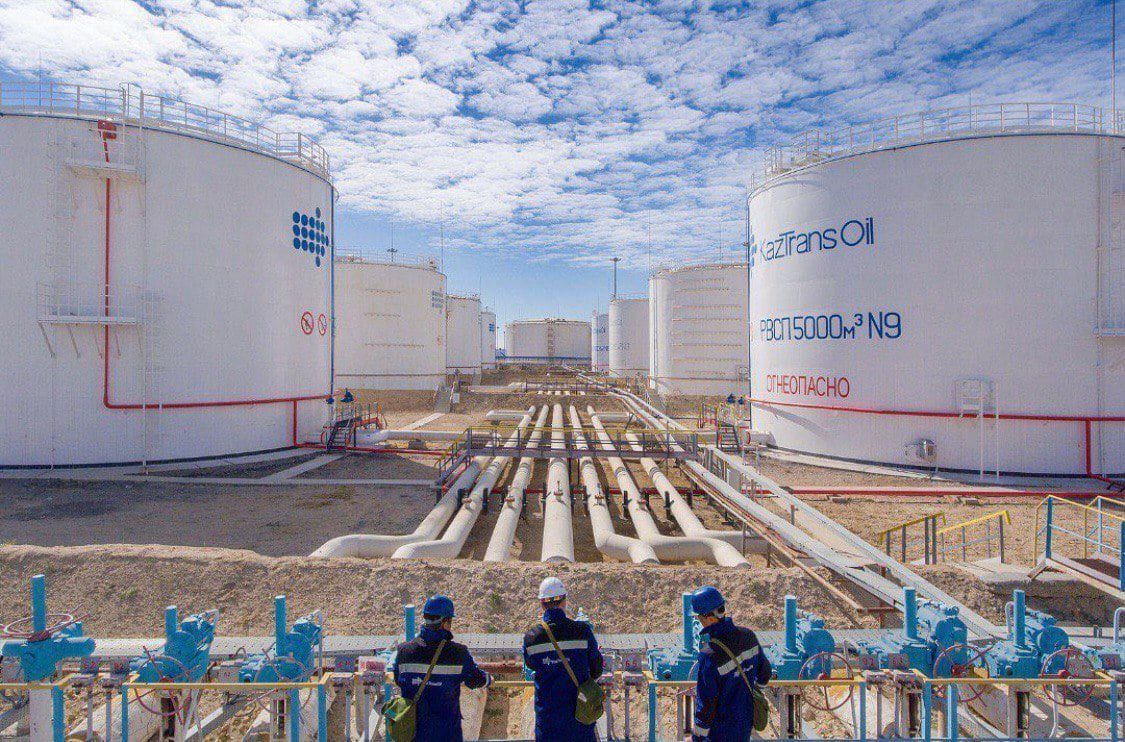In the second year after the outbreak of the Russian-Ukrainian war, the Caspian Sea Pipelines Consortium (CPC) announced its willingness to increase supplies of Kazakhstani oil in 2023, which may contribute to alleviating global demand concerns.
The Director General of the Caspian Sea Pipelines Union, Nikolai Gorban, said that the expected increase in supplies during 2023 is due to the increase in the capacity of the pipelines, according to what we kill, Reuters.
The Caspian Sea Pipelines Consortium has started work on production expansions in offshore pumping and loading facilities since the first quarter of 2022, with the aim of reaching the level of 1.8 million barrels per day by 2024.
The volume of oil supplies passing through the Caspian Sea Pipeline Consortium is approximately 1% of the world’s oil supply, according to the specialized energy platform.
Shipping 420 million barrels in 2022
The Caspian Sea Pipelines Union was able to ship 58.7 million tons (about 420 million barrels) of oil during the past year 2022, including 52.2 thousand tons (370 million barrels) from Kazakhstan – the largest producer in Central Asia – which it relies on to ship most of its production, in When Russia uses it to transfer only part of its production.
* (a ton equals 7.1 barrels)
The Caspian Sea Pipeline Consortium transports Kazakh oil to world markets through a specialized terminal on the Russian side of the Black Sea.
The union faced maintenance problems at the oil-carrying station over the past year, in addition to other problems in the oil fields, especially in the Kazakh field of Tengiz, which was subjected to a huge explosion in July 2022, and it is the second largest oil field in the world, after the Saudi Ghawar field.
Problems in the Tengiz field – which has reserves estimated at 25 billion barrels – disrupted part of global oil supplies over the past year.
The second largest producer after Russia
Kazakhstan is the second largest oil producer in the list of republics independent of the former Soviet Union, pumping 1.5 million barrels per day.
While Russia comes to the fore with a huge difference in production capacities ranging between 10 and 11 million barrels per day, noting that both countries are members of the global OPEC group specialized in coordinating oil production among the largest producers in the world.
Kazakhstan’s oil exports amounted to approximately 1.32 million barrels per day in 2021, compared to 1.42 million barrels per day in 2020, according to OPEC’s annual report.

The dilemma of the landlocked country
Kazakhstan is one of the largest geographically landlocked countries in the world, despite its area of 2.7 million square kilometers, which forces its oil exports to use the Black Sea in Russia to cross to Europe and global markets.
The Caspian Sea Pipelines Consortium (CPC) includes several joint stock companies of different nationalities, the largest of which is the Russian Transneft Company, which has a monopoly on oil pipelines and holds the largest share (24%).
The Kazakh company “Gaz Money Gas” also acquires a share of approximately 19%, while the American multinational Chevron Company contributes a share of 15%.
The structure of shareholders of the Caspian Line
The Russian company “Lokarko BV”, a subsidiary of Lukoil, contributes 12.5%, followed by Mobil Caspian with 7.5%.
The company operating the lines also contributes 7%, in addition to another share of “Rosneft Shell” amounting to 7.5%, according to what was monitored by the specialized energy platform.
Russian oil exports to Europe are facing an almost complete embargo that has been in effect since December 5, 2022, prompting Moscow to change its direction to the major economic powers in Asia with generous cuts to China and India.
European and US sanctions excluded transportation and export operations from the Caspian Sea Pipeline Association so that other countries such as Kazakhstan would not be affected.
However, the US Treasury called on the union operating the lines to differentiate between the sources of crude oil transported through the pipeline, and to allow the marketing of non-Russian supplies only.
Exporting oil to Germany
Kazakhstan has received recent official approval from Moscow to transport 300,000 tons (2.13 million barrels) of oil to Germany via the Druzhba pipeline, during the first quarter of 2023, according to the local Astana Times website.

The local company, “Gaz Trans Oil”, confirmed that it had obtained transit confirmation from the Russian Ministry of Energy on January 13, 2023, according to what was monitored by the specialized energy platform.
Moscow’s approval to transport Kazakhstan’s oil through its territory comes within the framework of the international agreement signed between the two countries in June 2022.
Germany had entered into negotiations with Kazakhstan since September 2022 to purchase alternative quantities of oil to compensate the Schwedt refinery in Brandenburg for the banned Russian supplies.
The Kazakh company “Kaz Monai Gas” contributes to the supply of oil to the states of East Germany, including Berlin, and a sample of up to 20,000 tons is scheduled to be exported during January 2023, through the Durgba pipeline, which is operated by the Russian company “Transneft”.
Neither Gas Monai Gas nor the Russian side set a specific date for exporting the initial shipment during January 2023, according to what was monitored by the specialized energy platform.
related topics..
Also read..

Leave a Reply